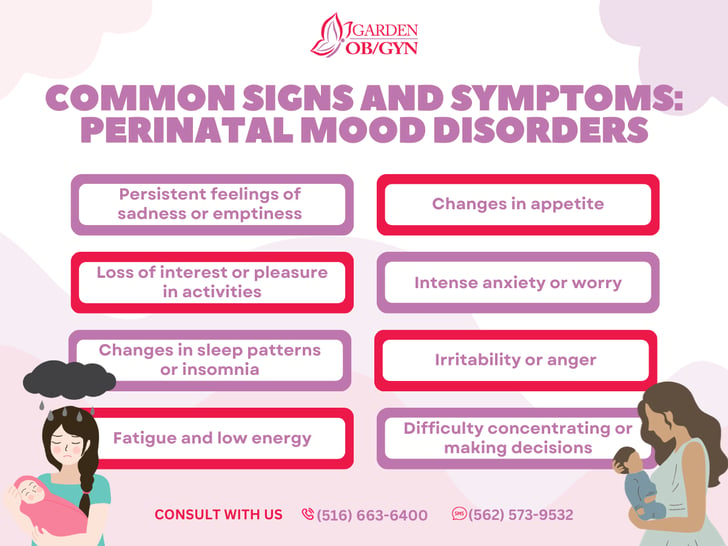Identifying and Managing Perinatal Mood Disorders
In this article, we will explore the identification and management of perinatal mood disorders, shedding light on the importance of early intervention and support.

Welcoming a new life into the world is a profound and transformative experience for any parent. However, the perinatal period, encompassing pregnancy and the first year after childbirth, can also bring about a range of emotional challenges. Perinatal mood disorders, including conditions like postpartum depression and anxiety, affect a significant number of individuals during this delicate time. Recognizing and addressing these disorders is crucial for the well-being of both parents and the newborn. In this article, we will explore the identification and management of perinatal mood disorders, shedding light on the importance of early intervention and support.
Identification of Perinatal Mood Disorders
-
Understanding the Spectrum: Perinatal mood disorders comprise a spectrum of conditions that can manifest during pregnancy or after childbirth. These include postpartum depression, postpartum anxiety, postpartum OCD, postpartum PTSD, and in severe cases, postpartum psychosis. Recognizing the nuances and varied presentations of these disorders is essential for accurate identification.
-
Common Signs and Symptoms:
- Persistent feelings of sadness or emptiness
- Loss of interest or pleasure in activities
- Changes in sleep patterns or insomnia
- Fatigue and low energy
- Changes in appetite
- Intense anxiety or worry
- Irritability or anger
- Difficulty concentrating or making decisions
-
Risk Factors: Certain factors may increase the likelihood of developing perinatal mood disorders. These include a history of mental health issues, lack of social support, stressful life events, complications during pregnancy or childbirth, and hormonal fluctuations.
-
Screening Tools: Healthcare providers often use standardized screening tools to assess maternal mental health during the perinatal period. These tools help identify individuals at risk and facilitate early intervention. The Edinburgh Postnatal Depression Scale (EPDS) is one such widely used screening tool.
Management and Support
-
Open Communication: Encouraging open communication between healthcare providers and expectant or new parents is crucial. Creating a safe space for individuals to express their feelings and concerns allows for early detection and intervention.
-
Psychoeducation: Providing comprehensive information about perinatal mood disorders, their prevalence, and the importance of seeking help reduces stigma and increases awareness. Education empowers individuals to recognize symptoms and seek assistance proactively.
-
Therapeutic Interventions: Therapeutic interventions, such as cognitive-behavioral therapy (CBT) and interpersonal therapy (IPT), have shown efficacy in treating perinatal mood disorders. These therapies focus on improving coping mechanisms, communication skills, and emotional regulation.
-
Medication: In more severe cases, medication may be recommended. Antidepressants and anti-anxiety medications, when prescribed under the guidance of a healthcare professional, can help manage symptoms while minimizing potential risks to the baby.
-
Social Support: Building a strong support network is essential. Friends, family, and support groups can offer emotional assistance, practical help, and a sense of community. Social support is a key factor in preventing and managing perinatal mood disorders.
Identifying and managing perinatal mood disorders is a collective effort involving healthcare professionals, families, and communities. By fostering awareness, encouraging open communication, and providing timely support, we can create a supportive environment for expectant and new parents. Addressing perinatal mood disorders not only promotes the mental health of individuals but also contributes to the well-being of the entire family unit. In this journey into parenthood, understanding and empathy are powerful tools that can pave the way for a healthier and more fulfilling experience.
































